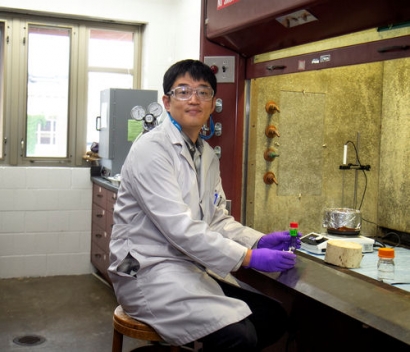
The research team focused on lignin found in hardwoods and is looking to find effective solvents that can be used to convert biomass to alternative fuels and chemicals.
"Biomass has great potential for many applications, including alternative fuels, chemicals, and materials," said Yoo. "Our work has identified a cost-effective and renewable approach to using biomass as an alternative source."
Because lignin inhibits biomass conversion and is difficult to remove from plants, the economic feasibility of producing biofuels has been prohibitive thus far, according to Chang. The ESF research team has countered this issue by using lignin that has been removed from the plant material and repurposing it to create an effective lignin extraction solvent, which plays a crucial role in biofuel production.
"This is a perfect example of what we do at ESF," said Yoo. "We look for eco-friendly and sustainable ways to make the best use of every product. The lignin that we're using to create biomass processing solvent would otherwise be discarded as waste. Currently, only 5%of the generated lignin from the paper and bioprocessing industry is used as a low-quality energy source. The valorization of this under-utilized lignin can enhance the industrial feasibility of biofuels and biochemicals. In the project, we found a great potential of the lignin component as a future green solvent and catalyst. Especially, the use of p-hydroxybenzoic acid, one of the hardwood lignin components."

